-

It happened today in Hungarian history:
•
4 December 1536: Czeczey Lénárd took Kassa (Kaschau, Kosice) Kassa was a key city of the Kingdom of Hungary, and after the Battle of Mohács, its German burghers opened its gates before the troops of Hans Katzianer, the general of King Habsburg Ferdinand. During the sad years of the Dual…
-
![“[Charles Evans] Hughes waged a lackluster campaign [in 1916] — TR called him ‘Wilson with whiskers’ — but he remained the overwhelming favorite.](https://wohistorynlocalgist.com.ng/wp-content/uploads/2024/12/1000209921-150x150.jpg)
“[Charles Evans] Hughes waged a lackluster campaign [in 1916] — TR called him ‘Wilson with whiskers’ — but he remained the overwhelming favorite.
•
New York bookmakers quoted the final odds at 5 to 3. On election night, FDR attended a large dinner given by Henry Morgenthau, Sr., for party bigwigs at New York’s Biltmore Hotel. . . . [The] politicians hoped against hope the bookies had it wrong. Gloom settled in quickly. Early…
-
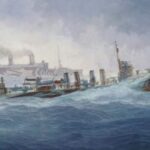
“When Congress declared war on April 6, 1917, the United States was a second-class military power.
•
The Army, relegated to showing the flag in Latin America and pursuing Mexican banditti, consisted of 108,399 men, a third of whom were on garrison duty in Panama, Hawaii, and the Philippines. The various state militias, recently formed into a National Guard, added but another 200,000, and there was no…
-
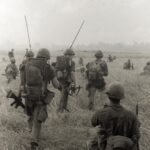
Vietnam War History: The Battle of Loc Ninh
•
On this day, November 9, in 1967, the fierce ten-day battle for the Loc Ninh Special Forces Camp came to an end. Just miles from the Cambodian border, the camp was a strategic stronghold in South Vietnam, defended by U.S. Army Special Forces and South Vietnamese irregular forces. On October…
-
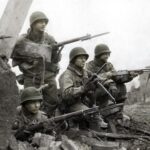
Battle of the Bulge
•
During the Battle of the Bulge, which took place from December 16, 1944, to January 25, 1945, American soldiers faced one of the most intense and brutal engagements of World War II in the harsh winter conditions of the Ardennes Forest. As German forces launched a surprise counteroffensive, the American…
-
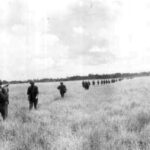
Just so we’re clear, the Pacific theater of World War II fucking sucked.
•
The Allies faced a tenacious enemy who refused to give up and didn’t subscribe to the Geneva Conventions; they considered anyone who wasn’t Japanese a member of an inferior race and treated them as such. Add in nasty jungle diseases and it was a whole lot of not fun. The…
-
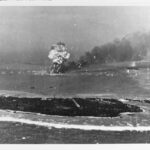
On this day in history, 4 December 1943, the U.S. conducts airstrikes against Kwajalein Atoll in preparation for the invasion of the Marshall Islands.
•
Although the invasion itself was not set to start until 31 January of 1944, the pre-invasion strikes helped soften the Japanese resistance on the islands. The planning and execution of the Marshalls campaign helped to restore faith in the American military planning capabilities after operations such as Tarawa, nicknamed “Bloody…
-
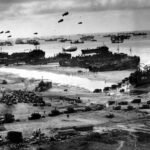
When reviewing the Asia/Pacific conflict during World War II, it is important to put it in the context of the greater global war.
•
While involving over 50 countries and as many colonies and territories, the conduct of World War II essentially boiled down to a contest between six major powers divided evenly into two competing coalitions. For the Allies, this consisted of the British Empire, the Soviet Union and the United States. Confronting…
-
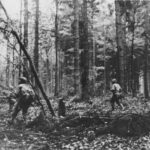
1944: Company G, 26th Infantry, leads an attack into Hurtgen Forest, with the 16th Infantry on their left to the west.
•
At 1200 hours on Nov. 16, Co. G moved up to the line of departure in Schevenhutte. They could hear US bombers hitting targets on the plain several miles away, and the friendly sound of their own artillery going over. The scouts of the first platoon were guiding on the…
-
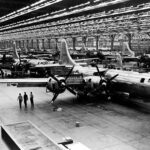
A key contributor to Japan’s defeat during World War II was the flawed premise guiding its war effort regarding the moral character of the Western nations and particularly that of the United States.
•
Japanese authorities surmised that the Allied nations were too preoccupied and/or morally weak to engage in a protracted war if dealt a chain of early defeats. Therefore, they sought to deliver a series of quick, decisive victories that would demoralize the Allied nations and compel them to sue for peace.…